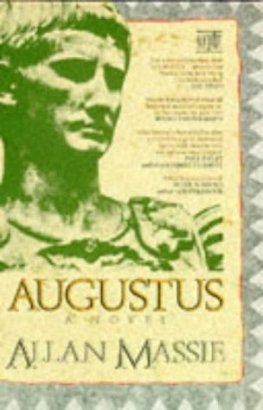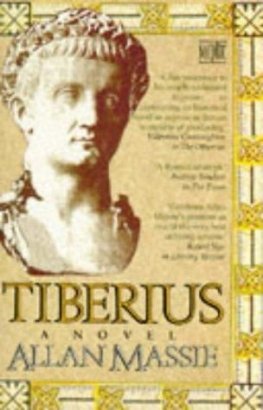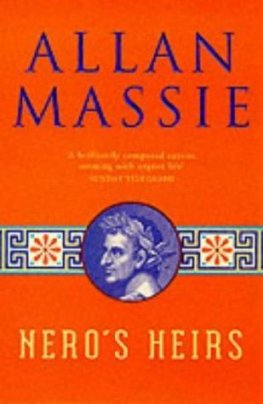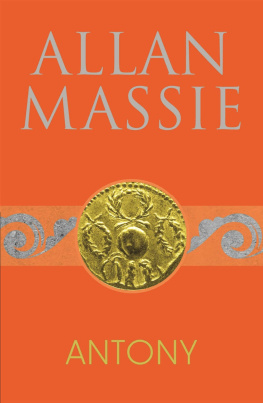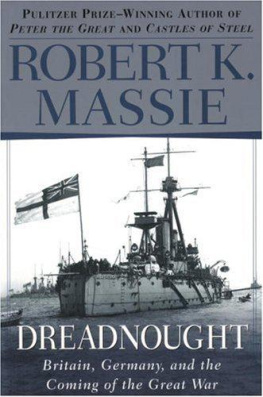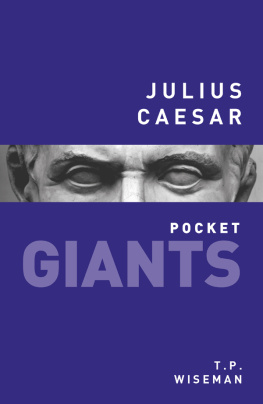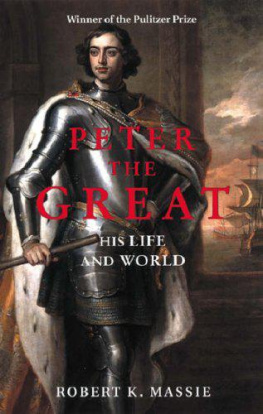Allan Massie - Caesar
Here you can read online Allan Massie - Caesar full text of the book (entire story) in english for free. Download pdf and epub, get meaning, cover and reviews about this ebook. genre: Adventure. Description of the work, (preface) as well as reviews are available. Best literature library LitArk.com created for fans of good reading and offers a wide selection of genres:
Romance novel
Science fiction
Adventure
Detective
Science
History
Home and family
Prose
Art
Politics
Computer
Non-fiction
Religion
Business
Children
Humor
Choose a favorite category and find really read worthwhile books. Enjoy immersion in the world of imagination, feel the emotions of the characters or learn something new for yourself, make an fascinating discovery.

- Book:Caesar
- Author:
- Genre:
- Rating:5 / 5
- Favourites:Add to favourites
- Your mark:
- 100
- 1
- 2
- 3
- 4
- 5
Caesar: summary, description and annotation
We offer to read an annotation, description, summary or preface (depends on what the author of the book "Caesar" wrote himself). If you haven't found the necessary information about the book — write in the comments, we will try to find it.
Caesar — read online for free the complete book (whole text) full work
Below is the text of the book, divided by pages. System saving the place of the last page read, allows you to conveniently read the book "Caesar" online for free, without having to search again every time where you left off. Put a bookmark, and you can go to the page where you finished reading at any time.
Font size:
Interval:
Bookmark:
Allan Massie
Caesar
CHAPTER 1
The river was no wider than a horse could leap. Beyond, on the farther bank, shepherds, angular figures wearing sheepskin cloaks, were gathering their flocks. Evening mist hid the sheep themselves from view; only the upper parts of the shepherds could be seen as the vapour rose from the marshy ground. It was cold. Rain began to fall. I turned away, and, my right knee throbbing a legacy of our last campaign hobbled the mile back to camp.
Casca was in his tent, drinking wine heated with nutmeg and cinnamon. He had removed his armour and stood by the table, slack-bellied in his tunic.
"Nothing to see. Nothing to report." "Of course there isn't. Everything is arranged," he said. "I wish I could be as confident. He's made mistakes before now, bad ones. Labienus used to say that 'impetuosity' was the General's greatest defect."
"Yes, and if he'd not been there to restrain him, we'd have been in the soup. Spare me the tune, old fruit. Well, old Lab isn't here now, and good riddance to him."
Labienus, the most experienced of the General's lieutenants, his companion since the first days of the Gallic War, disliked Casca, despised him even, deploring his predilection for boys and wine. Fair enough, if your chosen refrain was 'ancient Roman virtue'. But Casca was my cousin and my closest friend. I knew his weaknesses better than Labienus could, his strengths also. For all his self-indulgence and affectations, he had nerve. His soldiers adored him, finding amusement in the constant presence of Diosippus and Nicander, Greek catamites, scented curly headed effeminates, whom Casca professed to adore. This was nonsense. Casca cared for nobody but himself, with the possible exception of his fat old mother. We were friends, but he would have slit my throat if policy or his own interest required him to do so.
"I left Himself at table. He was pretending to drink deep, and flirting with the child-wife of some Ravenna cit. Rather a juicy piece, certainly a sweeter armful than Calpurnia. But she'll be disappointed, poor slut."
"Yes," I said, "orders are out. He has also issued a declaration that his intentions are honourable and his cause just."
"Spare me the Ciceronian balls. When we fight it will be for Caesar's career and Caesar's skin. And our own. If I can kill a few of my creditors, Rome will be a sweeter place. Do you know what my debts come to? Neither do I, I'm happy to say, though my mother wrote to me on the subject only last week. Not that there will be much action tomorrow. Crossing that ditch which for some reason you thought it necessary to inspect will be merely symbolic. He's already sent a detachment of troops to occupy Rimini. And Antony and Curio arrived there yesterday, having fled Rome disguised as slaves. I should have liked to have seen the gorgeous Antony in that part."
He blew a kiss.
"I suppose he's been waiting for them," I said. "I suppose that's been the cause of the delay."
"You suppose wrong as usual, cousin. The reason has been policy in part, to make the opposition commit itself so publicly to his destruction and disgrace that he can argue he has been forced to move in self-defence."
"And hasn't he?"
"Hasn't he? Perhaps he has. Who can tell, with Caesar, at what moment the play-actor removes his mask? But he has delayed also because he knows that this is the decisive moment of his career. He is a gambler who has staked all. There's no turning back. It's the first step that counts. Now he's got the dice in the box. 'Let them fly high,' he muttered to me this evening."
"Are you nervous?" I said. "They tell me Caesar dreamed last night that he lay with his mother." "Caesar the dreamer," Casca said. "Is there news of Pompey?"
Casca laughed. He thought the great General a great booby, an old woman, and laughed again when I reminded him that some old women like his own mother were very tough. Pompey had boasted that he had only to stamp his foot on the soil of Italy, and legions would spring from the ground. That report, some weeks back, had disturbed Caesar, till Casca said:
"We must cut the ground from under his feet, so that he stamps only the air."
"Are the omens favourable?"
"The omens, my dear, are favourable, as Caesar has commanded."
I retired to my own tent, and lay on my camp-bed, anxious. I knew myself incapable of my cousin's levity. Casca had played the part of the ruined man so long that he knew no other, was incapable of seriousness. My position was different. I was younger in spirit, had much to lose, was justified in dreading the future. In any case, civil war is terrible. For all I knew Pompey could make his boast good.
Night crept on. I was reluctant to extinguish the lamp. My grandfather's stories of the great proscriptions in the wars between Marius and Sulla came between me and sleep. What had Caesar's dream portended? The implication was evident, disturbing, inauspicious. If Rome was his mother, to lie with her was incest. I had nursed the broken head of my friend Clodius, murdered by a gang hired by Pompey. Cicero defended the murderer with his usual dishonest rhetoric. I was at one with Casca in my contempt for the great orator, the self-styled saviour of the city from Catiline, my mother's cousin, and perhaps lover.
I do not think I slept.
Before dawn, there was more than night movement the ring of harness, the neighing of horses, the stamp of sentries, the susurration of a thousand legionaries. And then, far away, I heard the music, a thin and dancing pipe. I scrambled to my feet, and into my clothes, buckling on armour and seizing my sword. The mist was dense and clinging-wet, but the music drew me towards the river. Others pushed past me, hurrying towards it, soldiers moving in unaccustomed fashion, without orders or method. But for their eagerness, the sense of anticipation which enveloped us, you might have thought they were running away.
A splash told me we were approaching the bank. A horseman brushed past, the jolt of his horse causing me to stumble. But a path opened behind him, and then there was light. It came, like the music, from the further bank, a shaft of light, unnatural, unearthly. My chest heaved. I looked along that tunnel of light, and though I was gazing straight at it, was not blinded.
The piper sat on the far bank of the Rubicon, in Italy.
The music silenced the soldiers. They held back. A centurion near me shouted an order to advance into the stream. No one obeyed. The music floated towards us, and the mist swirled round the piper. Then a legionary cried: "It's the god Pan," and his shout was taken up, echoing along the wavering line, "Pan, Pan, Pan." The young man who had first cried the name threw himself on the ground. Others imitated his action. I kept my gaze on the piper who, without seeming to move, retired, fading into invisibility even as I tried to hold him in view. The music died away with him. There was a long grey silence. Shamefaced on account of their momentary terror, yet strangely exultant, the men scrambled to their feet, advanced on the stream, and crossed over into Italy.
"Some trick of the General's. You can count on that," Casca said. But was it? I have never known. When the incident was mentioned to Caesar, he smiled in that evasive, self-deprecating manner he had, that told you nothing, and yet hinted an enormity.
I remember that dinner in Rimini. Word had come to us that garrisons in the little towns nearby had surrendered, coming over to Caesar with protestations of loyalty. Caesar gathered his staff around him.
"This is not a time for feasting," he said, "but nevertheless I raise my cup of wine in token of my gratitude for your support, and to bear witness to my determination to succeed. We have taken an irrevocable step. When we crossed that stream this morning, we broke the laws of the Republic. You all know why I have done so. My enemies were determined to destroy me. I have acted in defence of my dignity, dearer to me than life itself. But do not allow yourselves to be deceived into thinking that this is a mere personal quarrel. I know indeed that you do not believe that. But I am also aware that in the weeks to come strenuous efforts will be made by friends, relatives and associates to persuade you that it is only that, and therefore unworthy of your support. So let me assert that I stand also in defence of the constitutional rights of the tribunes, and the liberties of the Roman people which my adversaries would subvert. Let me remind you that I offered to lay down my arms if Pompey would do the same. Let me remind you that I offered to surrender all my commands save Cisalpine Gaul and a single legion. Let me remind you that force was used against the tribunes who legitimately cast their veto against the Senate's decree that would have compelled me to disband my army without receiving any assurances of my personal safety. I did not seek this war. It was forced on me by my enemies. They wanted it, not I. I am only glad that it has provided me with the opportunity to number my friends. You here are chief among them, and I thank you with all my heart for your loyalty and courage. Our position is perilous, but we have known danger before. I trust in audacity, and in the justice of my cause."
Font size:
Interval:
Bookmark:
Similar books «Caesar»
Look at similar books to Caesar. We have selected literature similar in name and meaning in the hope of providing readers with more options to find new, interesting, not yet read works.
Discussion, reviews of the book Caesar and just readers' own opinions. Leave your comments, write what you think about the work, its meaning or the main characters. Specify what exactly you liked and what you didn't like, and why you think so.

